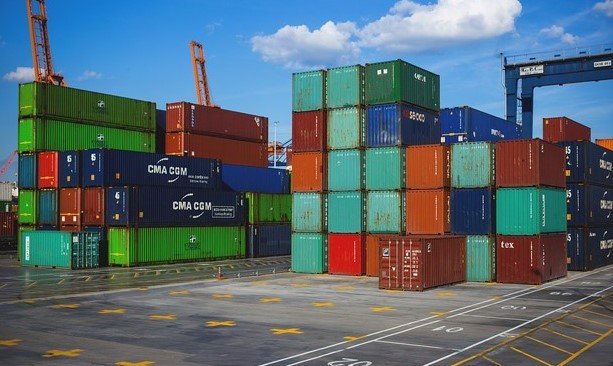Egypt’s bilateral trade with Australia drops slightly from 2023 levels, but exports to Australia see modest growth.
In a recent report by the General Authority for Public Mobilization and Statistics (CAPMAS), Egypt’s trade exchange with Australia for the year 2024 totaled $494 million, showing a decrease from the $558 million recorded in 2023. While this decline of approximately 11.5% might seem significant at first glance, it is important to note that Egypt’s export figures to Australia experienced a slight but promising uptick, despite the overall drop in trade volume.
This news comes at a time when the two nations are marking a historic milestone—75 years since the establishment of diplomatic ties. Egyptian President Abdel Fattah El-Sisi welcomed Australian Governor-General Sam Mostyn in Cairo on Sunday, cementing ongoing efforts to strengthen bilateral relations. The visit underscores the growing cooperation between Egypt and Australia, not just in trade but across various sectors including economic, social, and cultural exchanges.
A Small Drop in Total Trade Figures
Trade figures between the two countries have fluctuated somewhat over the past few years, and 2024’s figures show a downward trend. The drop from $558 million in 2023 to $494 million this year might initially raise concerns about the strength of the economic relationship. However, the numbers reveal a mixed story that highlights both challenges and opportunities for further collaboration.

Despite the drop in total trade, Egyptian exports to Australia actually saw a slight increase, rising from $45 million in 2023 to $50 million in 2024. While this growth is modest, it signals potential for greater diversification and expansion in Egypt’s export market in the near future.
What’s Driving the Decline in Imports?
On the flip side, Egyptian imports from Australia saw a significant decline. The value of imports dropped from $513 million in 2023 to $444 million in 2024, marking a 13.5% decrease. This reduction in imports could reflect a variety of factors, including changes in demand for Australian goods, shifting global economic conditions, and perhaps even the impact of regional trade dynamics.
Australia has long been a supplier of raw materials, machinery, and agricultural products to Egypt, but with Egypt working to diversify its trade relationships and strengthen domestic industries, it’s possible that some of these imports are being replaced by goods from other countries. This shift in import patterns might also be a sign of Egypt’s growing self-sufficiency in certain sectors.
The Impact of the 75th Anniversary Visit
The visit of Australian Governor-General Sam Mostyn to Egypt is not just about ceremonial recognition. The visit, timed to coincide with the 75th anniversary of diplomatic ties, carries significant weight for future economic relations between the two nations. President El-Sisi’s warm welcome of Mostyn was not only a gesture of goodwill but also a signal that Egypt is keen to continue building upon its relationship with Australia.
This anniversary is an important milestone, and it seems that both countries are eager to seize the moment to boost cooperation across all fields, including trade, agriculture, technology, and education. The 75th anniversary celebrations underscore the shared history between the two nations and their mutual interest in working together for a more prosperous future.
The timing of this visit also aligns with Egypt’s broader goal to bolster its international ties, especially with countries like Australia that offer valuable expertise and trade opportunities in sectors like agriculture, mining, and education. In fact, many Australian businesses are looking at Egypt’s growing infrastructure and markets as a potential hub for regional expansion.
Looking Toward Future Growth
Despite the mixed trade figures in 2024, the overall outlook for Egypt-Australia relations appears positive. The slight growth in exports suggests that Egyptian businesses are making inroads into the Australian market, which is a good sign for future expansion. Egypt’s push to diversify its economy and strengthen its manufacturing and agricultural sectors could play a significant role in boosting export figures in the coming years.
Both countries have shown an interest in deepening trade relations, and with ongoing diplomatic engagement, there is potential for further growth. As Egypt continues to invest in infrastructure and modernize its economy, it is likely that the demand for Australian goods will evolve, especially in fields such as mining, energy, and technology.
Moreover, the Egyptian government is keen on diversifying its trade partnerships. With initiatives like the New Administrative Capital and growing interest in the Suez Canal Economic Zone, Egypt is positioning itself as a strategic economic hub for global trade. Australia, with its robust agricultural and resource-based industries, can play an important role in this broader vision.
The slight growth in exports reflects the continued interest in Egypt’s products, while the drop in imports highlights the shifting trade dynamics and potential for future rebalancing of trade flows.
Egypt-Australia: Strengthening Ties Beyond Trade
The trade data tells just one part of the story. The 75th anniversary celebrations also signify the importance of cultural exchange and joint efforts in education, tourism, and regional stability. Both nations have expressed interest in tackling common challenges, particularly in areas such as climate change, sustainable agriculture, and regional security.
As President El-Sisi and Governor-General Mostyn continue discussions, it’s clear that the economic exchange is only one aspect of a broader and deeper partnership that is evolving between Egypt and Australia.
